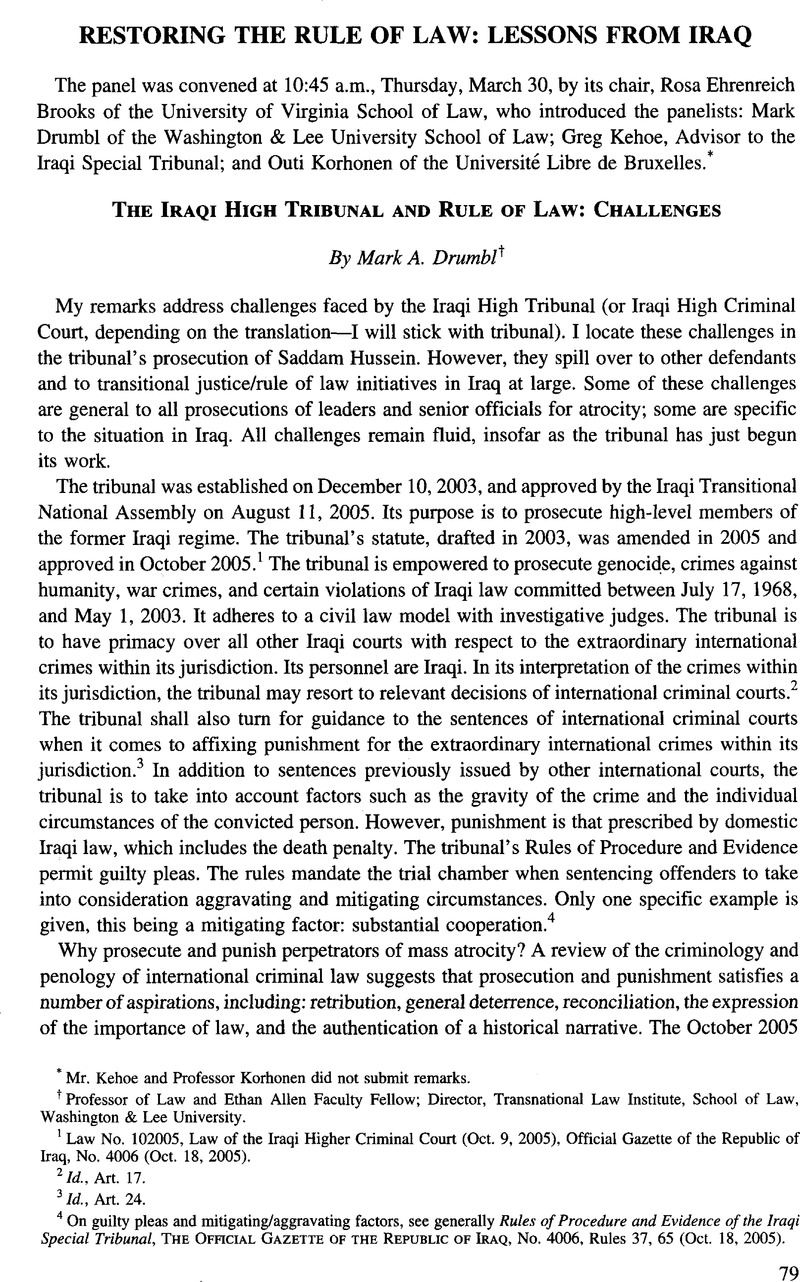No CrossRef data available.
Article contents
The Iraqi High Tribunal and Rule of Law: Challenges
Published online by Cambridge University Press: 28 February 2017
Abstract

- Type
- Restoring the Rule of Law: Lessons From Iraq
- Information
- Copyright
- Copyright © American Society of International Law 2006
References
1 Law No. 102005, Law of the Iraqi Higher Criminal Court (Oct. 9, 2005), Official Gazette of the Republic of Iraq, No. 4006 (Oct. 18, 2005).
2 Id., Art. 17.
3 Id., Art. 24.
4 On guilty pleas and mitigating/aggravating factors, see generally Rules of Procedure and Evidence of the Iraqi Special Tribunal, The Official Gazette of the Republic of Iraq, No. 4006, Rules 37, 65 (Oct. 18, 2005).
5 In December 2005 the Hague District Court found Frans van Anraat guilty of complicity in war crimes in Iraq and sentenced him to 15 years’ imprisonment. Van Anraat is a Dutch businessman who supplied raw materials to the government of Iraq that were used for the development of mustard gas and chemical weapons which were later used to attack the Kurdish population of Halabja in 1988 (part of the Anfal campaign)—attacks the Dutch court deemed to rise to the level of genocide (Van Anraat was acquitted of genocide insofar as the court did not find sufficient evidence of his knowledge of the genocidal intent of the Iraqi government). It is unclear whether the Iraqi High Tribunal would be influenced by the legal findings of the Dutch court on the question of genocide. There is some indication, however, that the tribunal would access the evidence made available to the Dutch court and the testimony. Sameer N. Yacoub Saddam Charged With Gassing Kurds in ‘80s, Wash. Post (Apr. 4, 2006).
6 See, e.g., Edward Wong, Shiites Say U.S. is Pressuring Iraqi Leader to Step Aside, N.Y. Times (Mar. 28, 2006) (noting that “[sļenior Shiite politicians said [...] that the American ambassador [Zalmay Khalilzad] has told Shiite leaders to inform the Iraqi prime minister than the Bush administration does not want him to remain the leader of Iraq in the next government.”).
* Mr. Kehoe and Professor Korhonen did not submit remarks.




